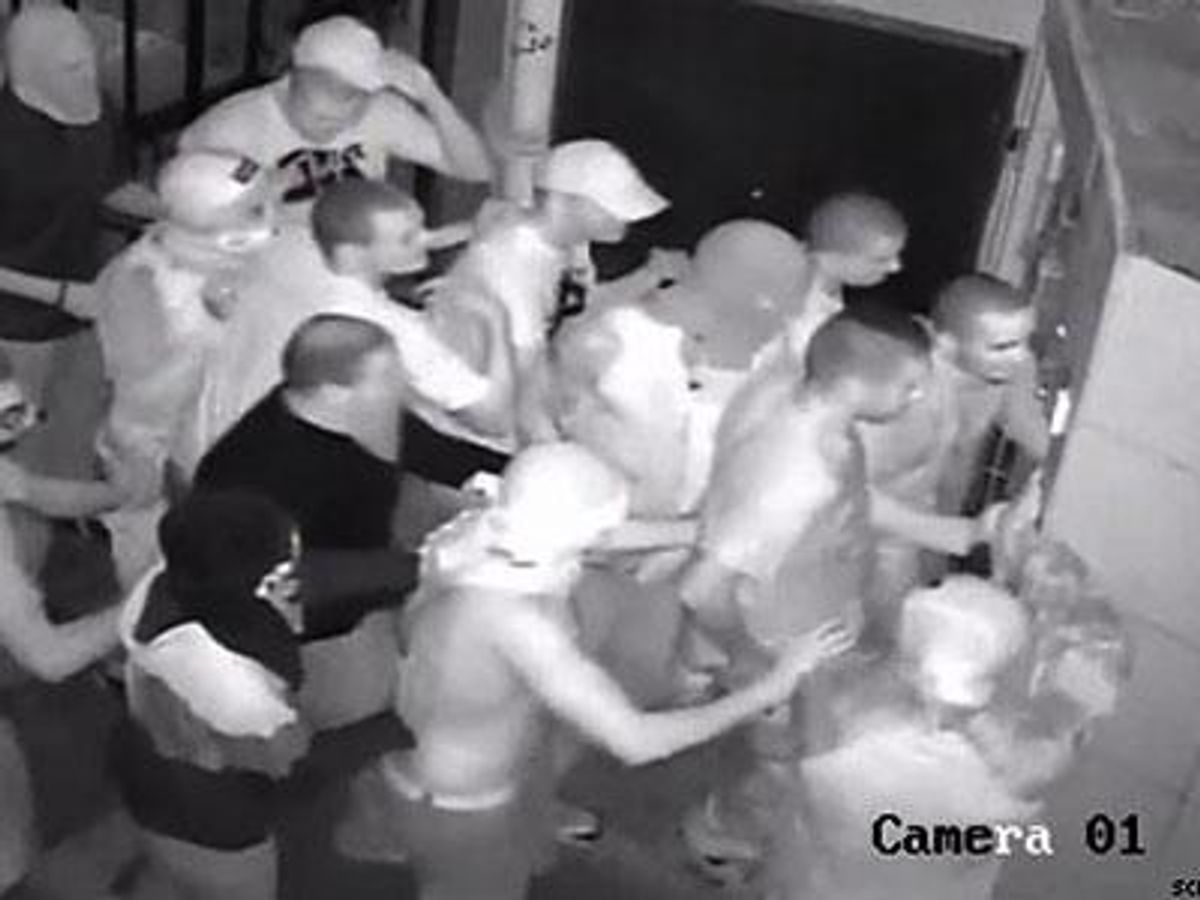Police in Victoria, Australia may have recently apologized for an infamous and illegal gay bar raid in 1994, but unwarranted and homophobic raids on bars and establishments serving predominately LGBT clienteles continue to happen in countries around the world.
America's then-burgeoning gay liberation movement kicked into high gear after a particularly egregious police raid on a gay bar in the Greenwich Village neighborhood of New York City. At The Stonewall Inn, police bullied, beat, arrested and humiliated LGBT people who had only come to the bar to enjoy drinks in each other's company. It was not the first time in America where LGBT communities became active against such brutality, but "Stonewall" has become shorthand for the moment in June 1969 when LGBT people fought back.
As LGBT equality gains ground in the U.S., visibility in some other countries is only beginning to take hold, including in more oppressive regions. Several recent raids of LGBT establishments around the world beg the question, might history be repeating itself in countries like Kenya, Ukraine and Lebanon?
 2014: Club Envy, Nairobi
2014: Club Envy, Nairobi
In early July, 60 people were arrested at Club Envy in Nairobi, Kenya for "suspected homosexuality."
Although generally considered safer than neighboring Uganda (which until a court overturned it last week, had a punishing antigay law that has pushed hundreds of LGBT refugees into Kenya), the latter African nation has a remnant colonial-era law against "buggery." Kenya's buggery law criminalizes sexual activity between people of the same sex. As recently as 2010, Raila Odinga, then Kenya's prime minister, called for the arrest of "all gays." Odinga later rescinded that call.
 2014: Pomada Club, Kiev, Ukraine
2014: Pomada Club, Kiev, Ukraine
Though not a police action, it was a violent raid when a group of roughly 20 neo-Nazis tried to force their way into a gay club in Kiev, Ukraine, on a Monday evening last month. Security camera footage obtained by U.K. LGBT site Pink News caught the attack on video.
The Ukrainian Ministry of Internal Affairs told Pink News at the time that assailants threw a smoke bomb and firecrackers into the Pomada Club. In the video, some of the skinheads, adorned with neo-Nazi tattoos like the Celtic cross and wearing masks, appeared to be rubbing their eyes as they huddled around the door just outside the bar. While a group of patrons hurried into the club at the beginning of the video, presumably seeing the attackers approach from off-camera, Pink News noted that one patron was unable to get inside and took off running, with one of the skinheads in pursuit.
 2014: Bronte Hotel, Harare, Zimbabwe
2014: Bronte Hotel, Harare, ZimbabwePolice raided a media training and workshop meeting of Gays and Lesbians Zimbabwe (GALZ), an LGBT equality and rights group. The raid occurred even after a court ruled against such raids targeting GALZ. Prominent Zimbabwean activists Natasha Dowell and Tawanda Maguzethe were arrested and charged under a law that is often used to silence critics of longtime dictator Robert Mugabe,
according to 76 Crimes, a blog chronicling human rights violations around the globe.
 2013: Club Ghost, Dekwaneh, Lebanon
2013: Club Ghost, Dekwaneh, Lebanon
Perhaps what's most striking about the shocking treatment at the hands of police was that they were allegedly ordered by the municipal head of Dekwaneh, Matn, Lebanon to rough up, intimidate and detain several patrons. Police particularly zeroed in on a gay Syrian man and a transgender woman, the latter of whom was, according to Global Voices, allegedly forced to strip naked, photographed nude by police and subjected to vulgar and demeaning verbal abuse. The event sparked widespread outrage among Lebanon's legal and activist community. As Global Voices quoted Lebanese blogger and women's health advocate Dr. Hasan Abdessamad, who "jokingly begged France to 're-colonize' Lebanon, citing the contrast between the French mandate-era law condemning sexual relations that are "contradicting the laws of nature" and France's recent legalization of same-sex marriage. "The country that gave Lebanon's Penal Code article 534 now gave all its citizens the right to marry," Abdessamad said.
 2013: Central Station, Moscow
2013: Central Station, Moscow
On a Saturday evening in December 2013, Moscow police arrested 40 people outside Central Station, one of the city's most popular gay bars. The arrests happened days after shirtless paramilitary "soldiers," who were reportedly suspected of being a mix of nationalists and off-duty police officers, ripped fixtures and roofing material from the building where Central Station is located, detaining bar patrons as they committed the vandalism, according to the Moscow Times.
The bar's operator, Andrei Lishchinsky reportedly wrote a letter to Russian President Vladimir Putin, asking the man who signed Russia's draconian "Anti-homosexuality Propaganda Act" to investigate whether "police may have acted in the interests of those who organized the attacks on the club" when they arrested the 40 people near the bar, who were presumably on their way inside.
 2013: La Bata de Boatine & El 23, Barcelona
2013: La Bata de Boatine & El 23, Barcelona
Wearing SWAT-style police gear, including bullet proof vests, members of Barcelona's "civilian police force," (reportedly without displaying proper identification as required by Spanish law) raided two popular gay bars in the city during its annual LGBT Pride celebration. According to Towleroad, Spanish newspaper, El Dario quoted the bar's owner as saying that "he believes the tactics used by the agents were due to homophobia, otherwise 'it makes no sense to have all this police presence just to ask me for a document,' especially when the bar passed a city inspection only four months ago."


 2014: Club Envy, Nairobi
2014: Club Envy, Nairobi 2014: Pomada Club, Kiev, Ukraine
2014: Pomada Club, Kiev, Ukraine 2014: Bronte Hotel, Harare, Zimbabwe
2014: Bronte Hotel, Harare, Zimbabwe 2013: Club Ghost, Dekwaneh, Lebanon
2013: Club Ghost, Dekwaneh, Lebanon 2013: Central Station, Moscow
2013: Central Station, Moscow 2013: La Bata de Boatine & El 23, Barcelona
2013: La Bata de Boatine & El 23, Barcelona










































































